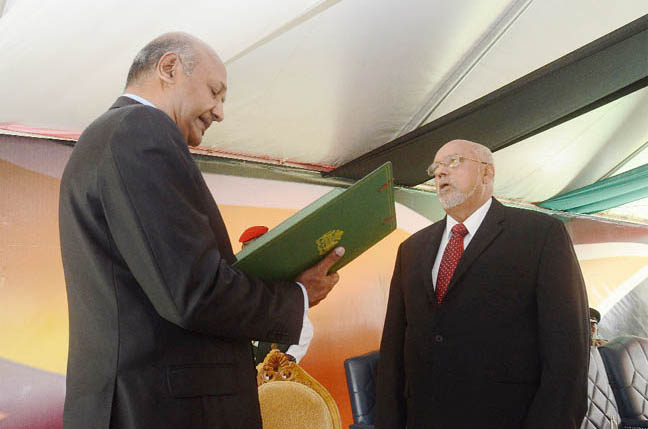Few people appeared impressed with the state-engineered theatrics and fewer still with the remark by former President Bharrat Jagdeo that the move by the opposition was ‘spiteful’ though it was difficult to resist conclusion
that the budget cut was the first salvo fired by a political opposition that was flexing its new-found muscle.
What subsequent events have proven is that both sides are finding it difficult to work with a political formula in which the ruling party does not control the National Assembly. The differences have become sufficiently intense to have given rise to rumours of intended ‘snap’ elections designed to try to restore the parliamentary majority to the PPP/C though, perhaps understandably, President Donald Ramotar himself has not been seen to be pedaling that line. In the meantime there has been no shortage of political firefights both inside and outside the National Assembly, the most recent one being the political squaring off between the government and the opposition over whether or not Home Affairs Minister Clement Rohee should remain in his job.
The year or so that has gone by has witnessed a further decline in public interest in politics and the political process, that loss of interest, it seems, having been generated by the sterility of the political culture. Politics really ought to be about a public process that enriches the quality of people’s lives and adds value to the country as a whole. Not a few people would contend that nothing could be further from the truth in Guyana.
Rather, what we continue to discover, increasingly, is that public interest and concern revolves around mounting crime, greater pockets of lawlessness, corruption, widening gaps between rich and poor, high unemployment, declining health care standards, violence against women and a seeming official indifference to the need to roll back these negative trends. Increasingly, our politicians resemble window-dressing.
It has been remarked time and again that there is a ‘sameness’ between the administration of President Donald Ramotar and his predecessor’s; except that – as Mr. Ramotar is beginning to find out – cultivating a presidential persona can take more time than one sometimes imagines.
Then there is the economy, touted as growing steadily though such growth as exists is manifested mostly in the gold sector. Bauxite and sugar continue to be underachievers and rice may just be holding its own. This, however, has done little to roll back the expansion of the commercial sector though – perhaps both unfairly and unfortunately in some instances – the rise of an increasing number of new structures in the city continues to be attended – in some cases – with whisperings about drug-dealing and money-laundering. That too seems to trouble no one unduly; life goes on and the gap between rich and poor grows wider.
During the campaign that preceded the November 2011 general elections the opposition political parties had made the issue of corruption under the Jagdeo administration their strongest campaign issue. Now that elections are a year behind us the charges of corruption appear to have crept over into the Ramotar administration. Seemingly no less than in the past issues of graft and nepotism are very much a part of the everyday political agenda.
What people appear to talk about most is what they believe is a political opposition that appears not to have a blueprint of its own for engaging the political administration. If the parliamentary majority shared by APNU and the AFC had suggested that there might be a chance that they would find some modus vivendi to engage the government, that has not materialized. Both ‘oppose’ but in their own separate ways and one gets the impression that both the People’s National Congress (PNC) and the AFC have set their sights on expanding and/or protecting their separate political bases rather than really working together.
The popular perception a year after the installation of the Ramotar administration may not amount entirely to a more-of-the-same perception. That having been said little if anything in the wake of positive change can be said to have occurred.





